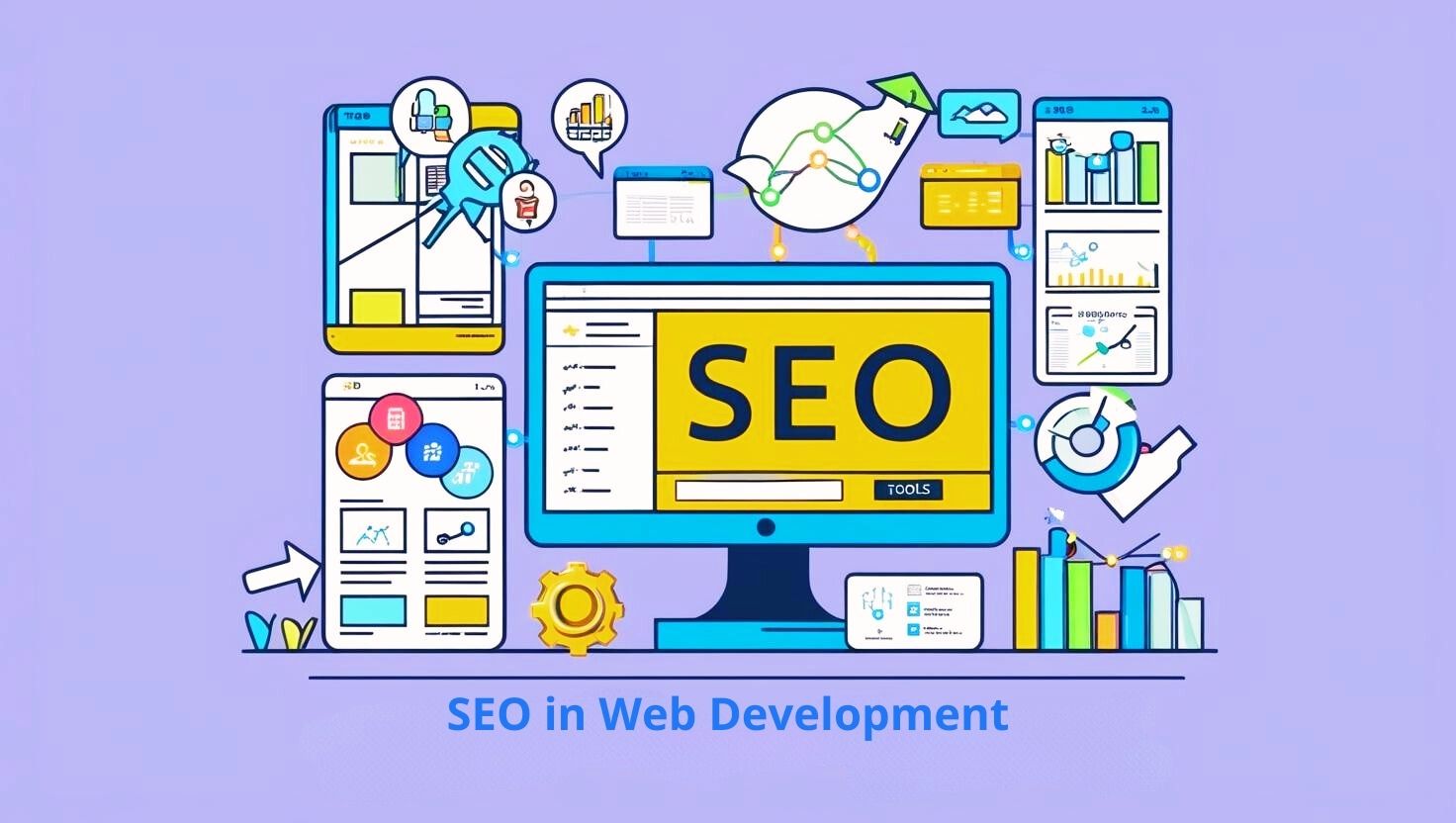
24 Jan SEO in Web Development: The Key to Better Search Rankings
Search Engine Optimization (SEO) is a critical aspect of modern web development. It ensures that your website appears prominently in search engine results, driving traffic and boosting visibility. By integrating SEO into the development process, businesses can improve their online presence and attract more users. This guide explores the role of SEO in web development and how it leads to better search rankings.
What Is SEO in Web Development?
SEO in web development involves building websites that are optimized for search engines. This includes creating a solid technical foundation, improving site speed, enhancing mobile responsiveness, and ensuring content is easily accessible to both users and search engine crawlers.
Why Is SEO Important?
Increases Visibility: Higher rankings in search engines mean more visibility for your website.
Drives Organic Traffic: Optimized websites attract users searching for relevant content.
Improves User Experience: SEO practices often align with better usability, benefiting both users and search engines.
Builds Credibility: Ranking higher signals to users that your website is trustworthy and authoritative.
Supports Long-Term Growth: SEO is a sustainable way to maintain consistent traffic and adapt to evolving search engine algorithms.
Key SEO Elements in Web Development
1. Website Architecture
A clear, logical structure helps search engines crawl your site effectively. Use:
- Clean URLs
- Logical navigation
- XML sitemaps
2. Mobile Responsiveness
With most users accessing websites via mobile devices, having a responsive design is essential. Google prioritizes mobile-first indexing, making this a critical SEO factor.
3. Page Speed Optimization
Faster-loading websites improve user experience and reduce bounce rates. Techniques include:
- Minifying CSS, JavaScript, and HTML
- Compressing images
- Using a Content Delivery Network (CDN)
4. On-Page SEO
Optimize individual pages with:
- Keyword-rich titles and meta descriptions
- Proper heading tags (H1, H2, etc.)
- Alt text for images
5. Secure Websites (HTTPS)
Websites with SSL certificates rank higher as they ensure a secure connection for users.
6. Schema Markup
Adding structured data helps search engines understand your content better, improving visibility in rich snippets.
7. Content Optimization
Content remains king in SEO. Ensure your website provides high-quality, engaging, and keyword-optimized content that answers user queries effectively.
8. Internal Linking
Linking to relevant pages within your website improves navigation and helps distribute link equity, enhancing your site’s SEO.
How Web Developers Can Support SEO
Collaborate with SEO Experts: Work closely with SEO specialists to align technical and content strategies.
Use SEO-Friendly Tools: Leverage tools like Google Analytics, Google Search Console, and SEO plugins for CMS platforms like WordPress.
Test and Monitor: Regularly test site performance, accessibility, and indexability to maintain optimal rankings.
Stay Updated: SEO is constantly evolving. Developers should stay informed about the latest best practices and algorithm updates.
Optimize for Accessibility: Ensure the website is accessible to all users, including those with disabilities, as this positively impacts SEO and user experience.
Benefits of SEO in Web Development
- Better User Engagement: SEO practices like faster load times and intuitive navigation enhance user satisfaction.
- Higher ROI: Organic traffic from search engines often results in better conversion rates.
- Competitive Edge: An optimized website gives you an advantage over competitors who neglect SEO.
- Scalability: An SEO-optimized site is easier to expand with new content and features without losing search rankings.
- Improved Brand Awareness: Consistently ranking at the top of search results increases brand recognition and trust.
Common SEO Mistakes to Avoid
Ignoring Page Speed: Slow-loading pages lead to high bounce rates and lower rankings.
Keyword Stuffing: Overusing keywords can result in penalties from search engines.
Neglecting Mobile Users: A non-responsive website significantly reduces your chances of ranking well.
Broken Links: These harm user experience and reduce search engine trust.
Skipping Analytics: Without tracking and analyzing data, it’s challenging to measure SEO success and make informed improvements.
Conclusion
Incorporating SEO into web development is no longer optional— it’s essential for achieving better search rankings and ensuring online success. From technical optimizations to user- focused improvements, SEO enhances every aspect of your website. By prioritizing SEO during the development process, you lay the groundwork for sustainable growth and visibility.PT KDN can help your business implement effective SEO strategies for a high-performing website.


Sorry, the comment form is closed at this time.